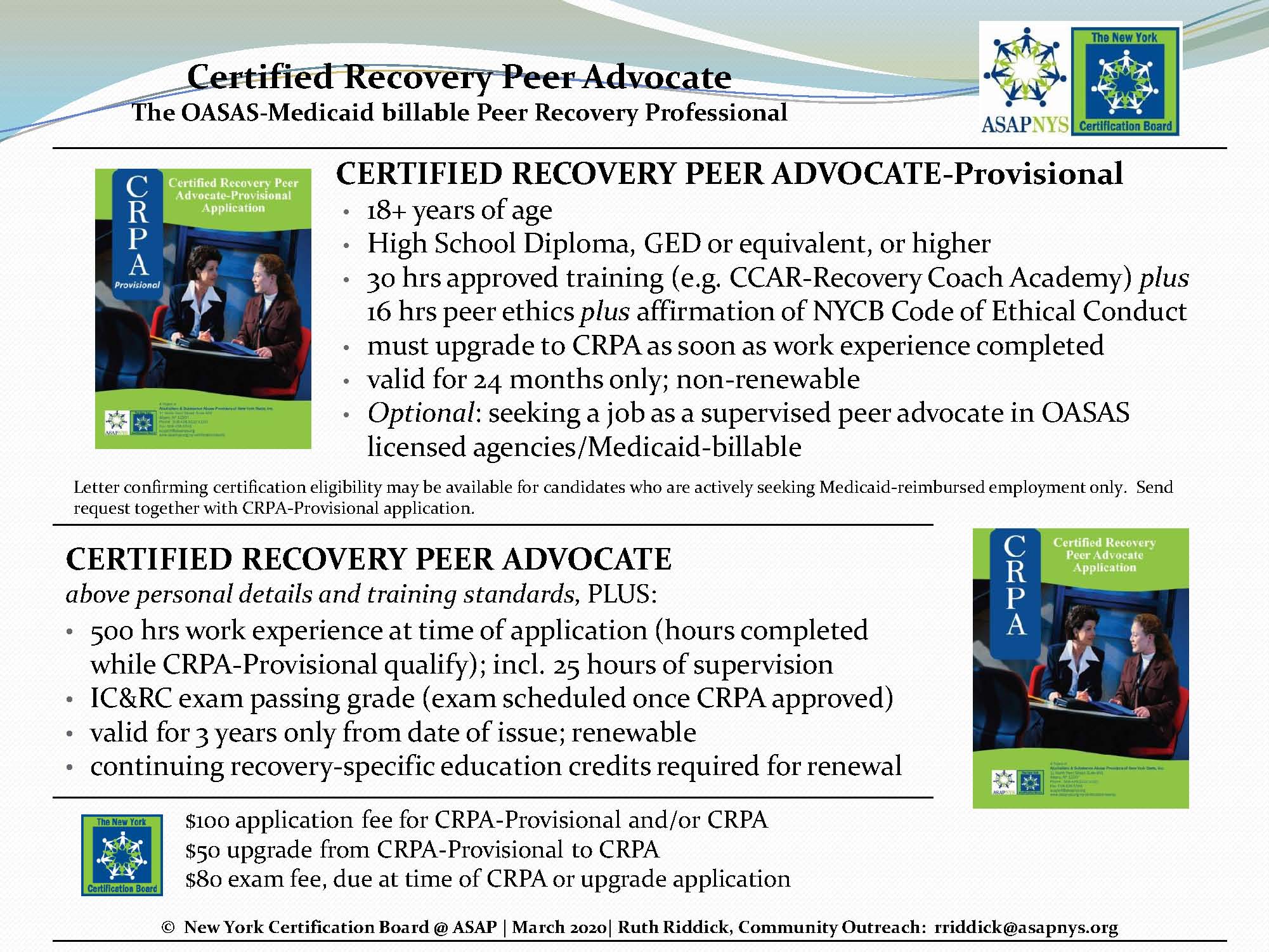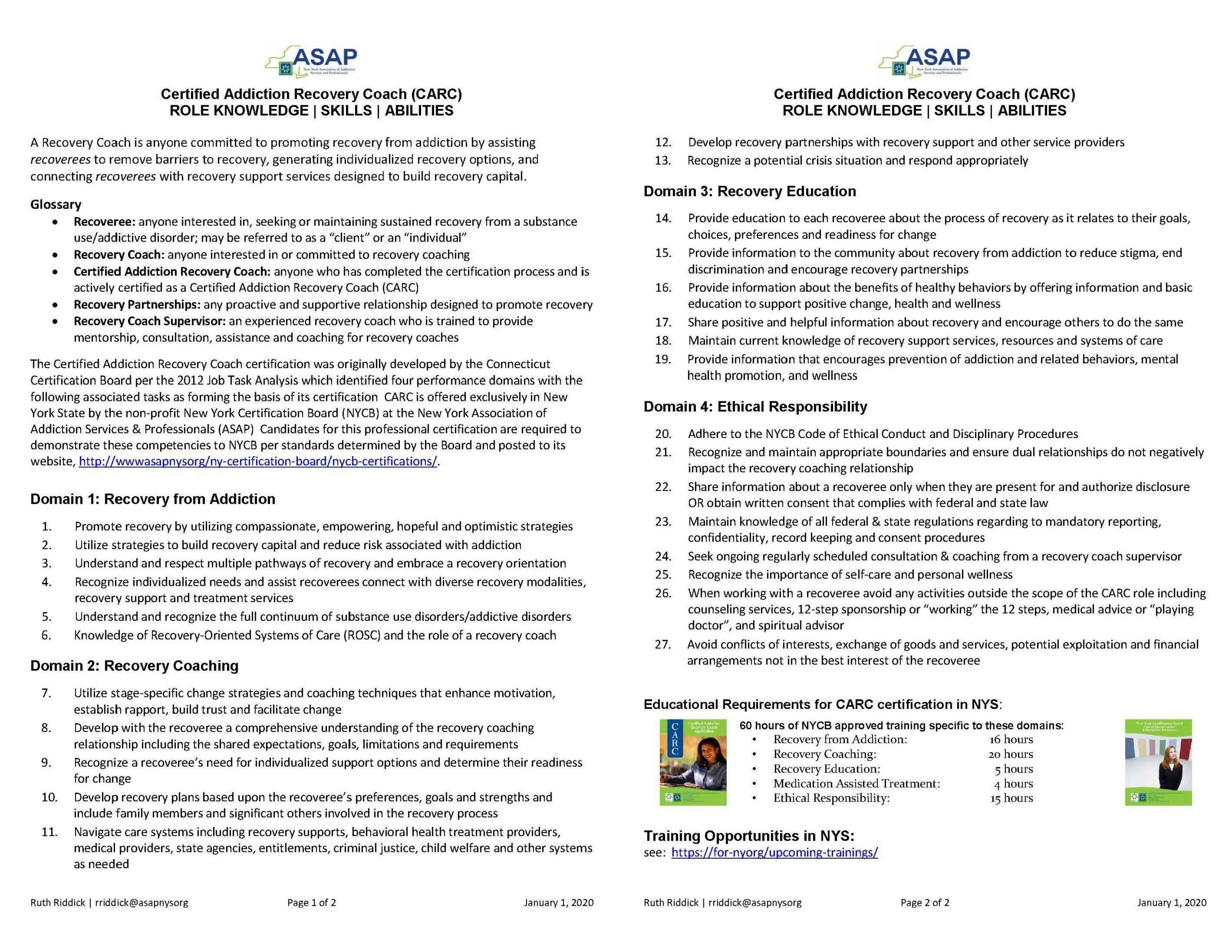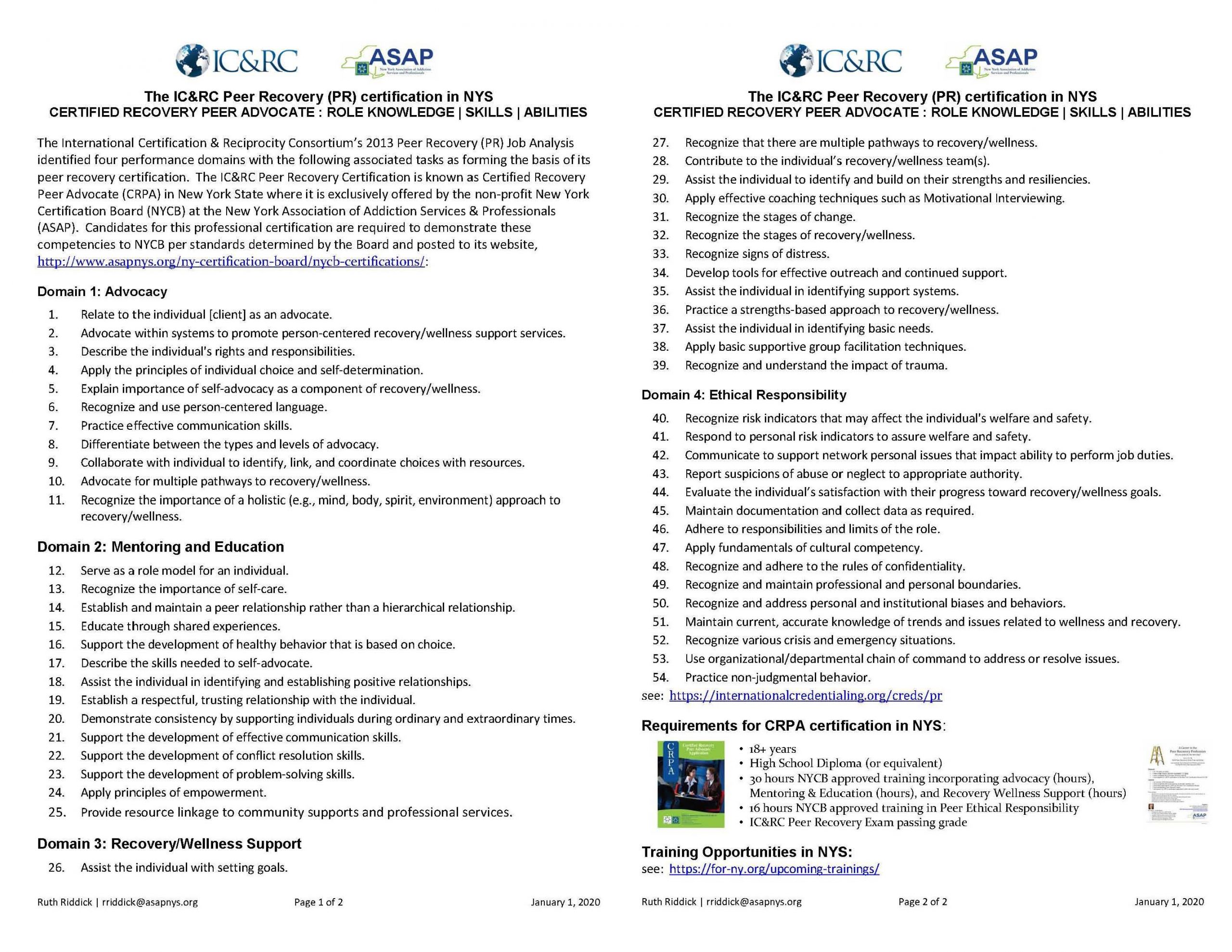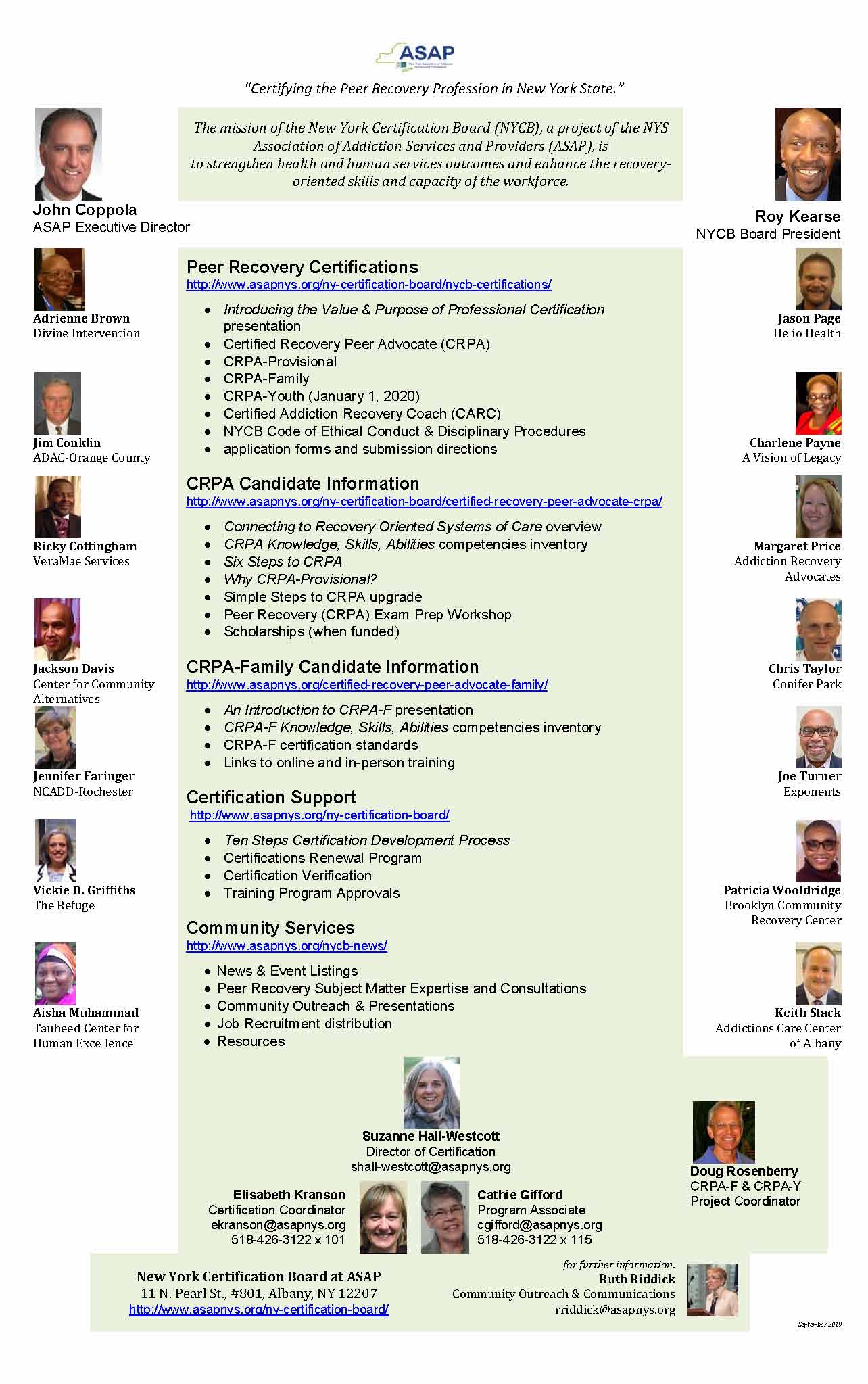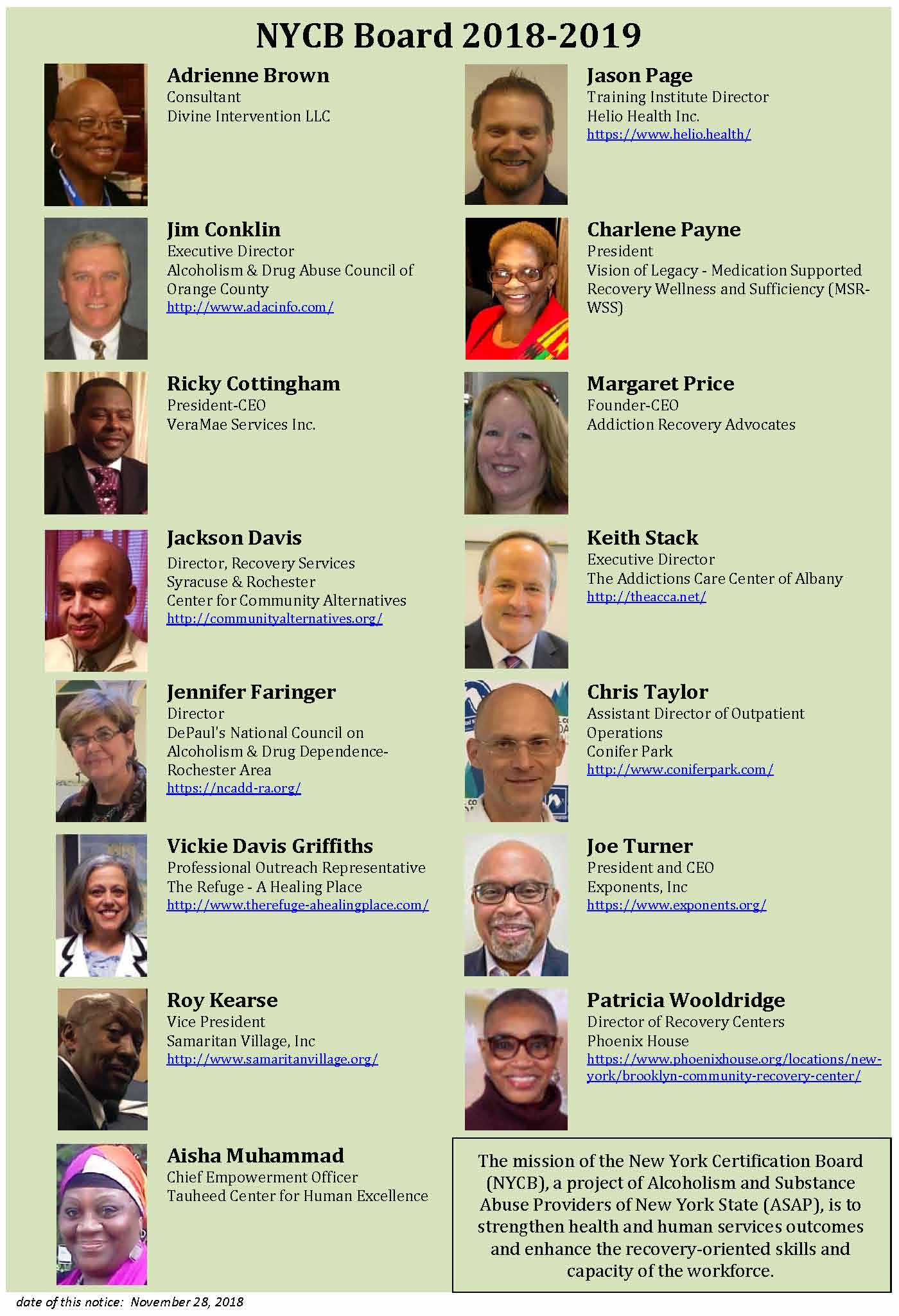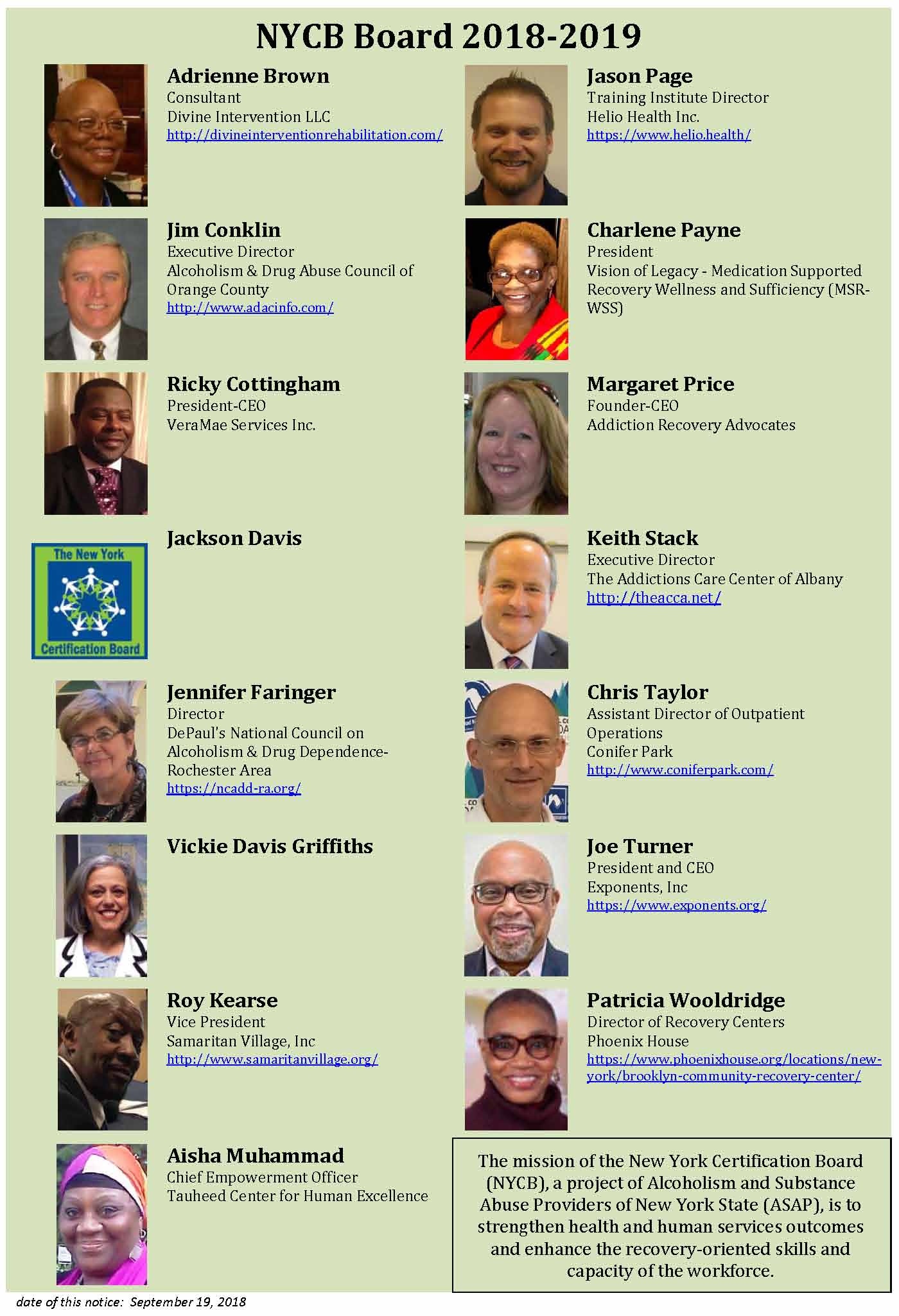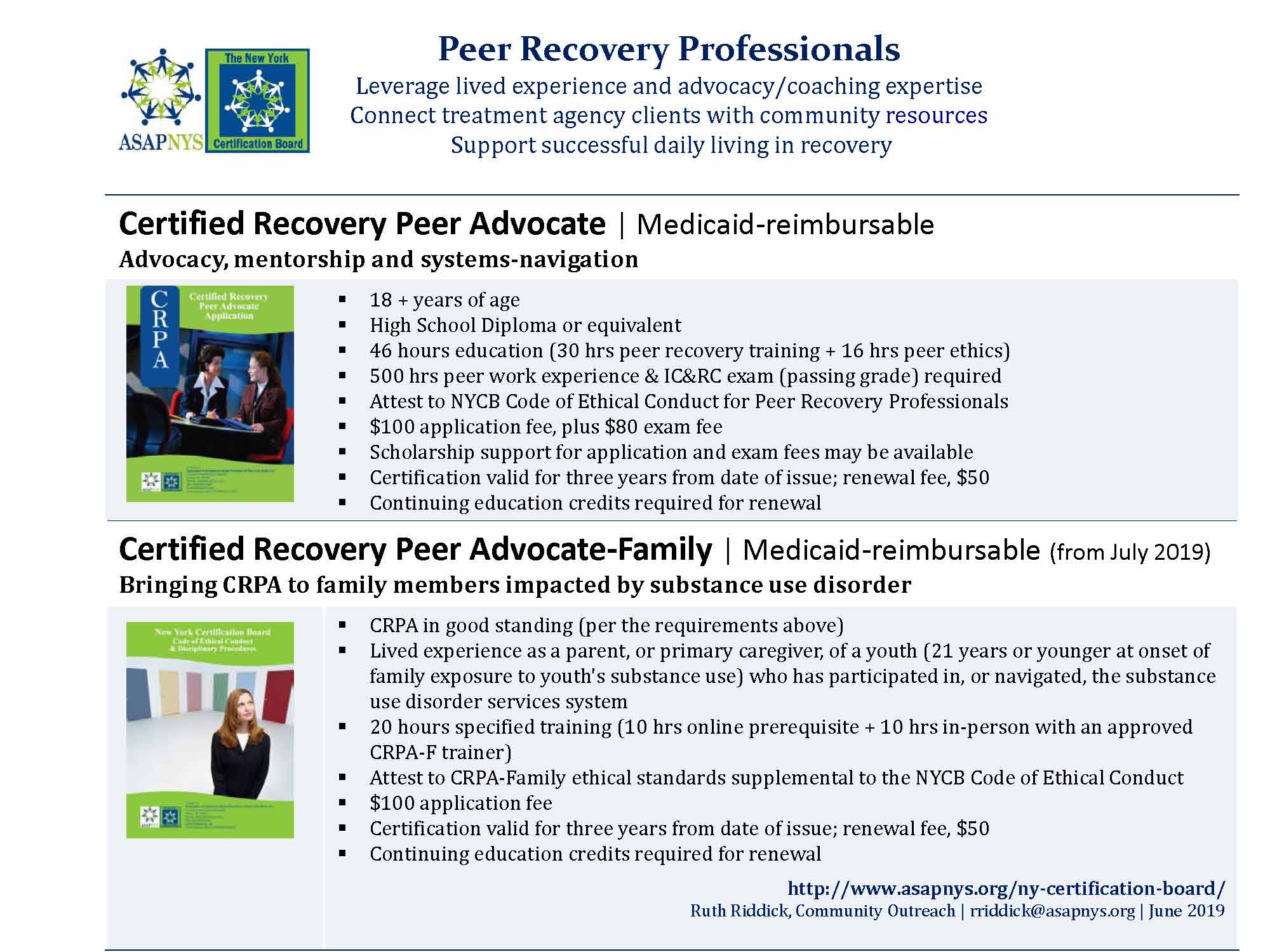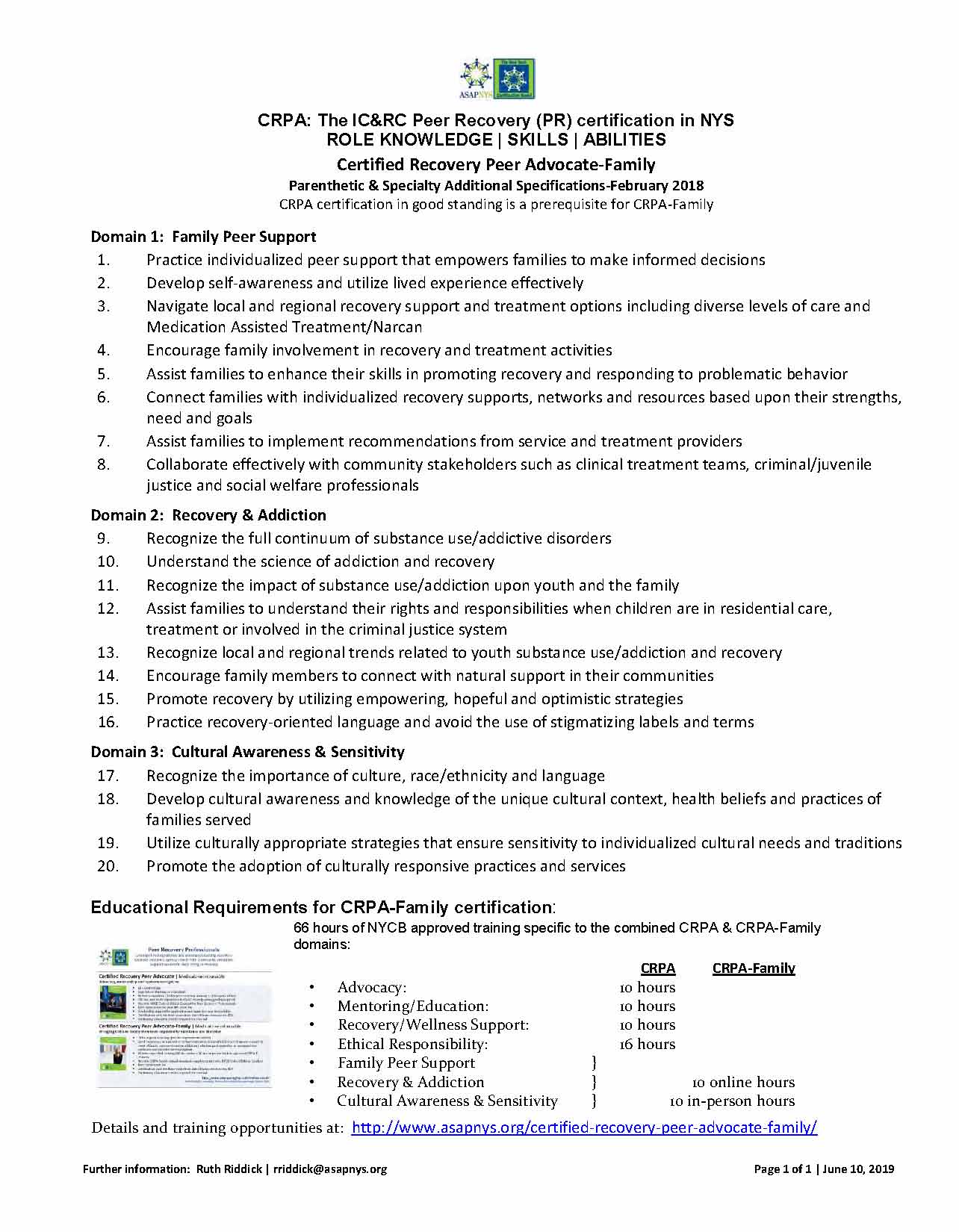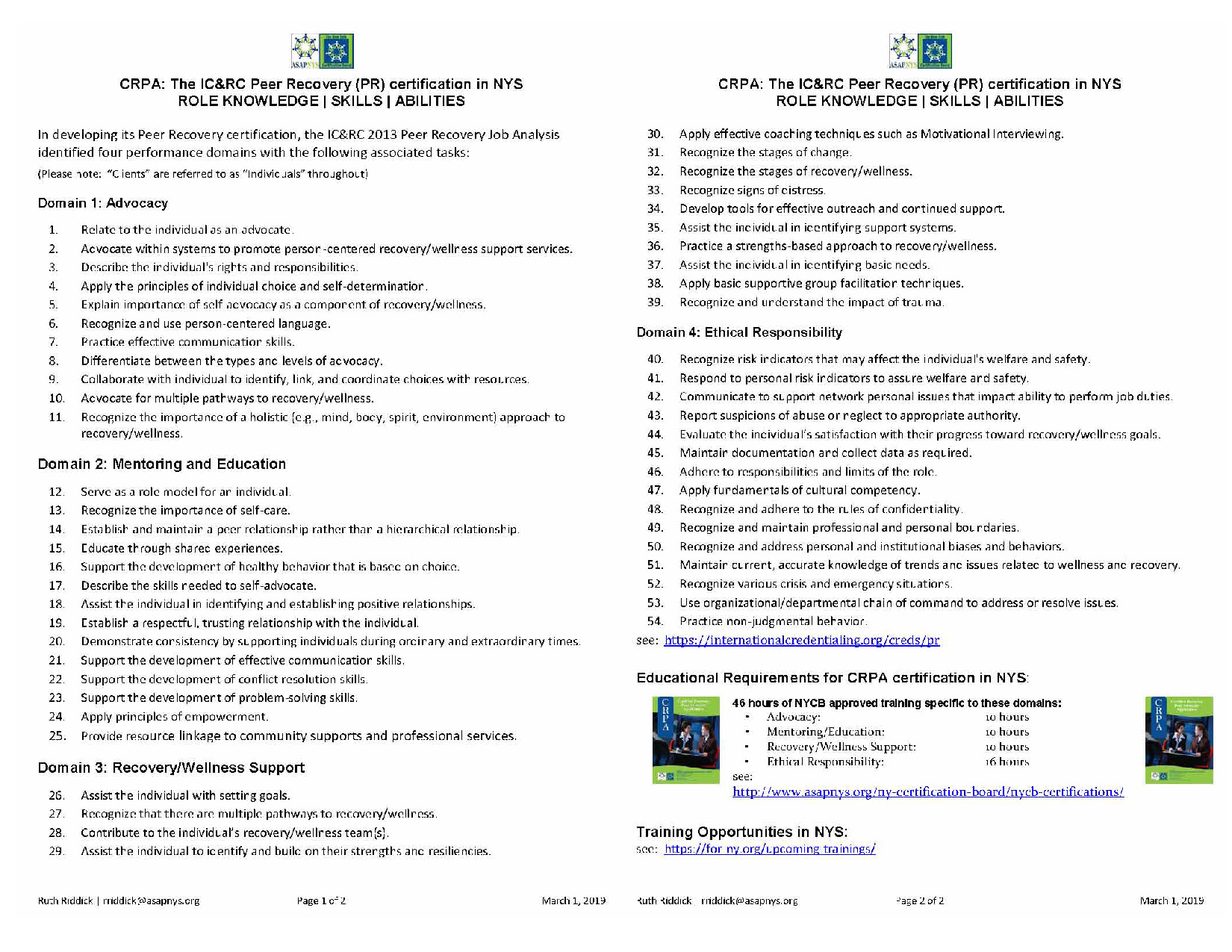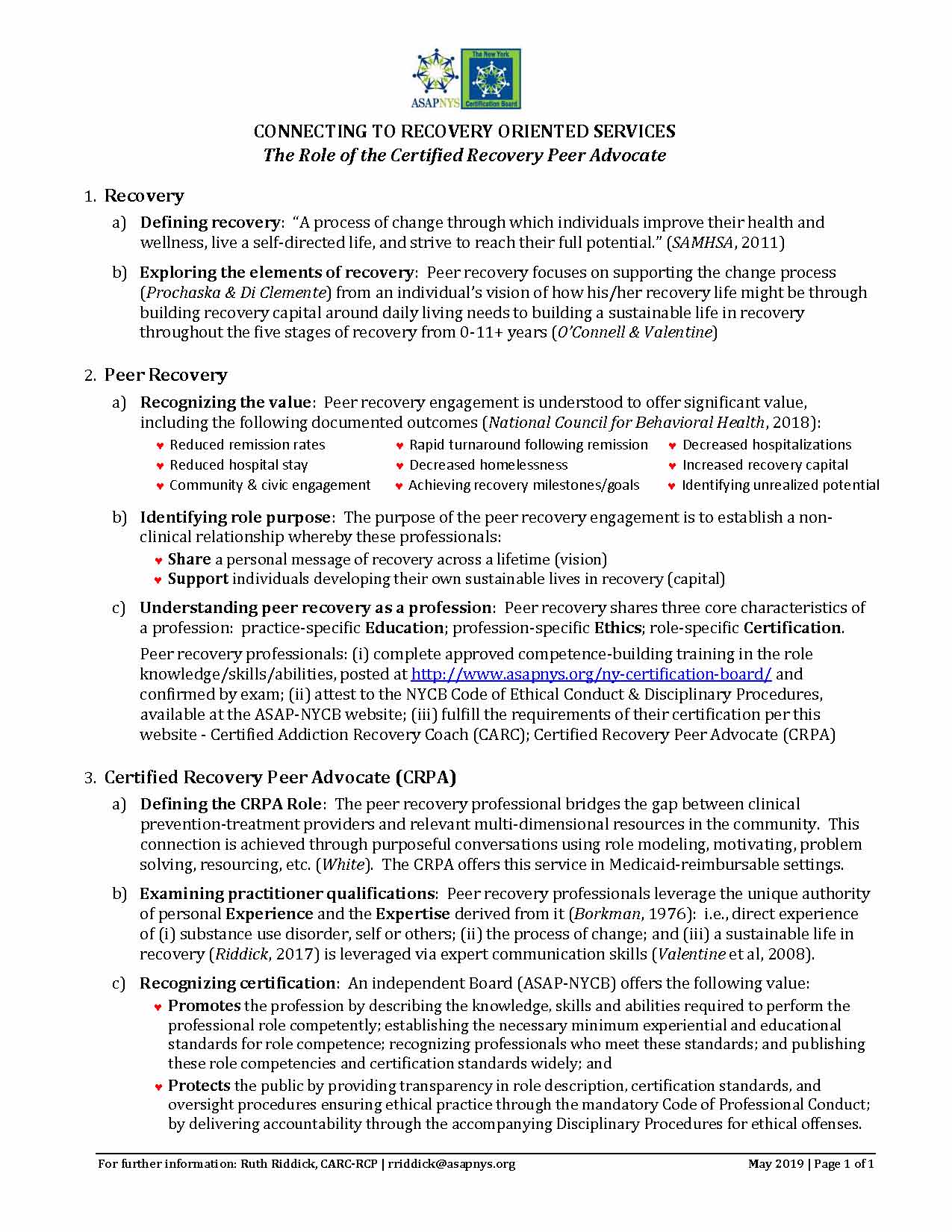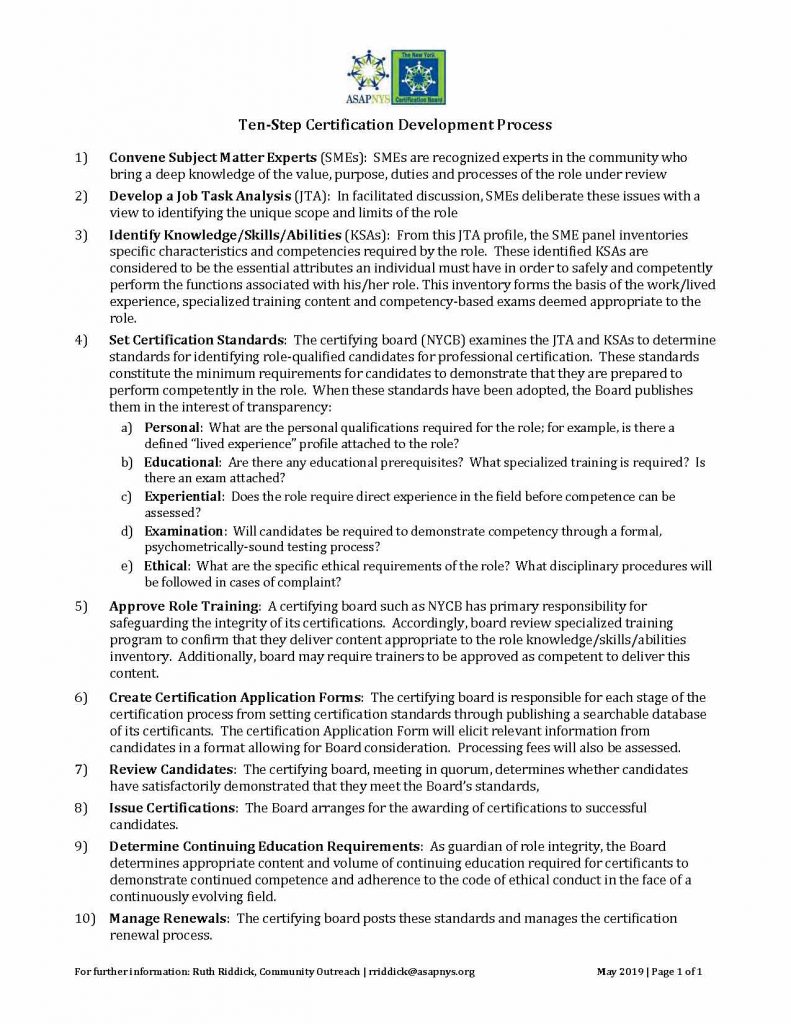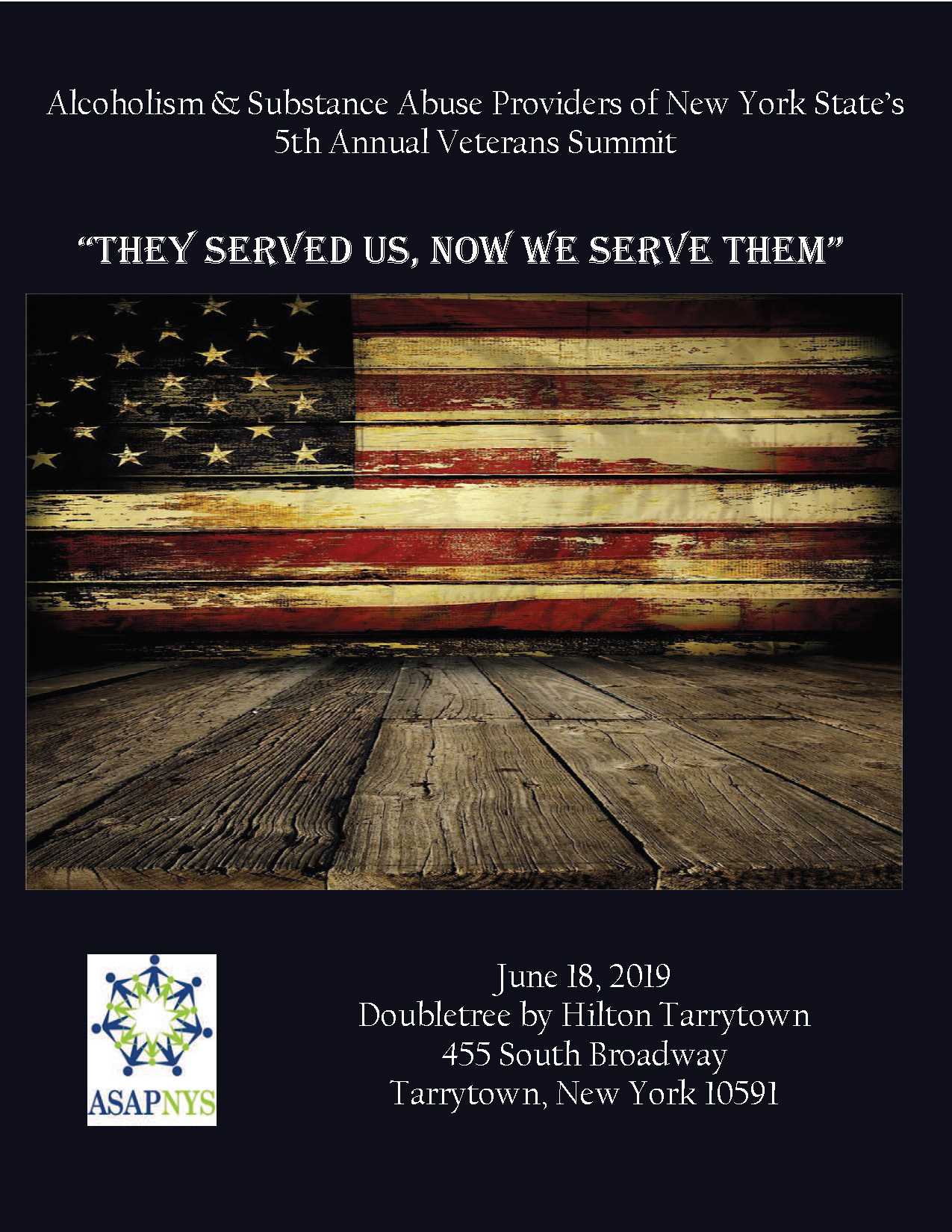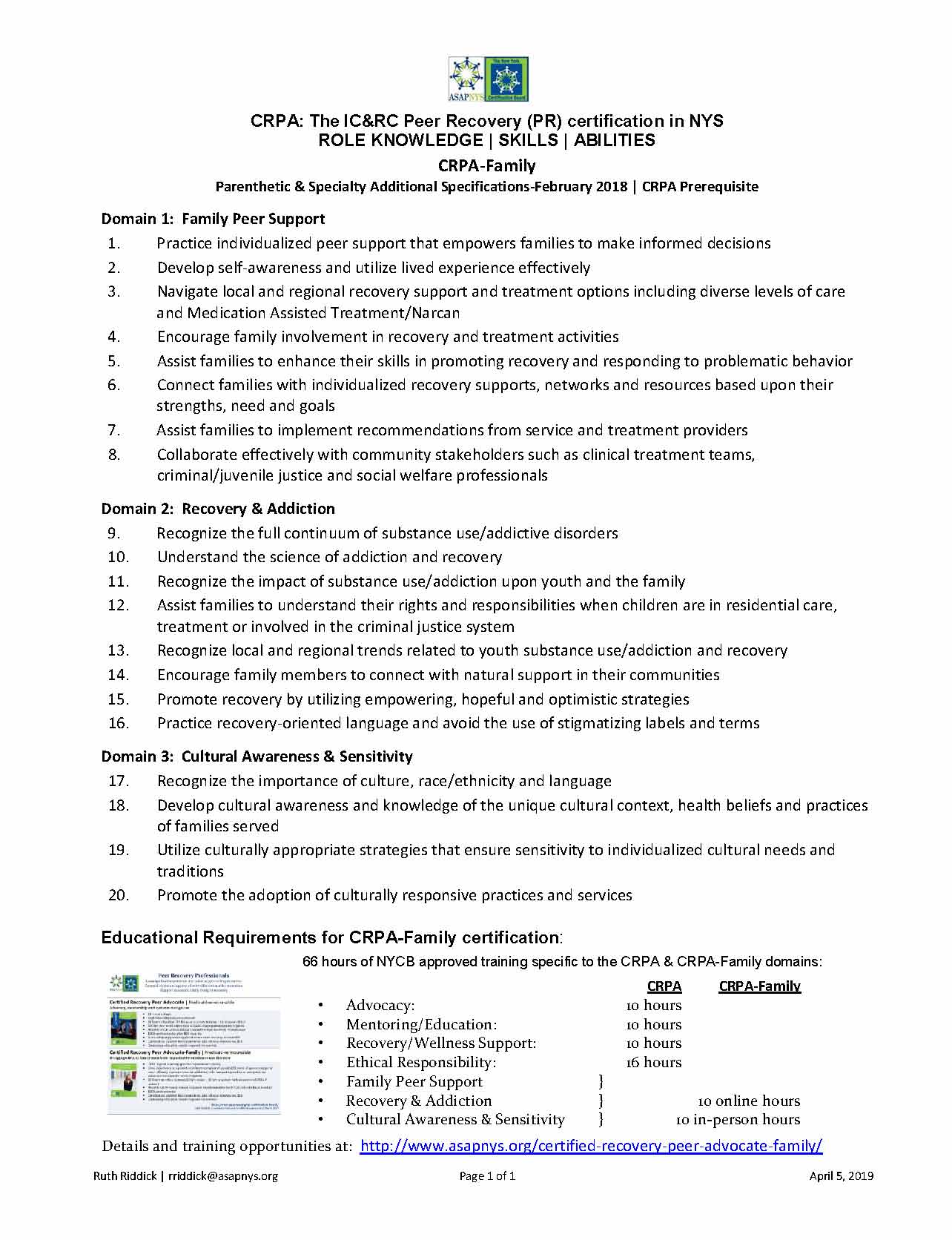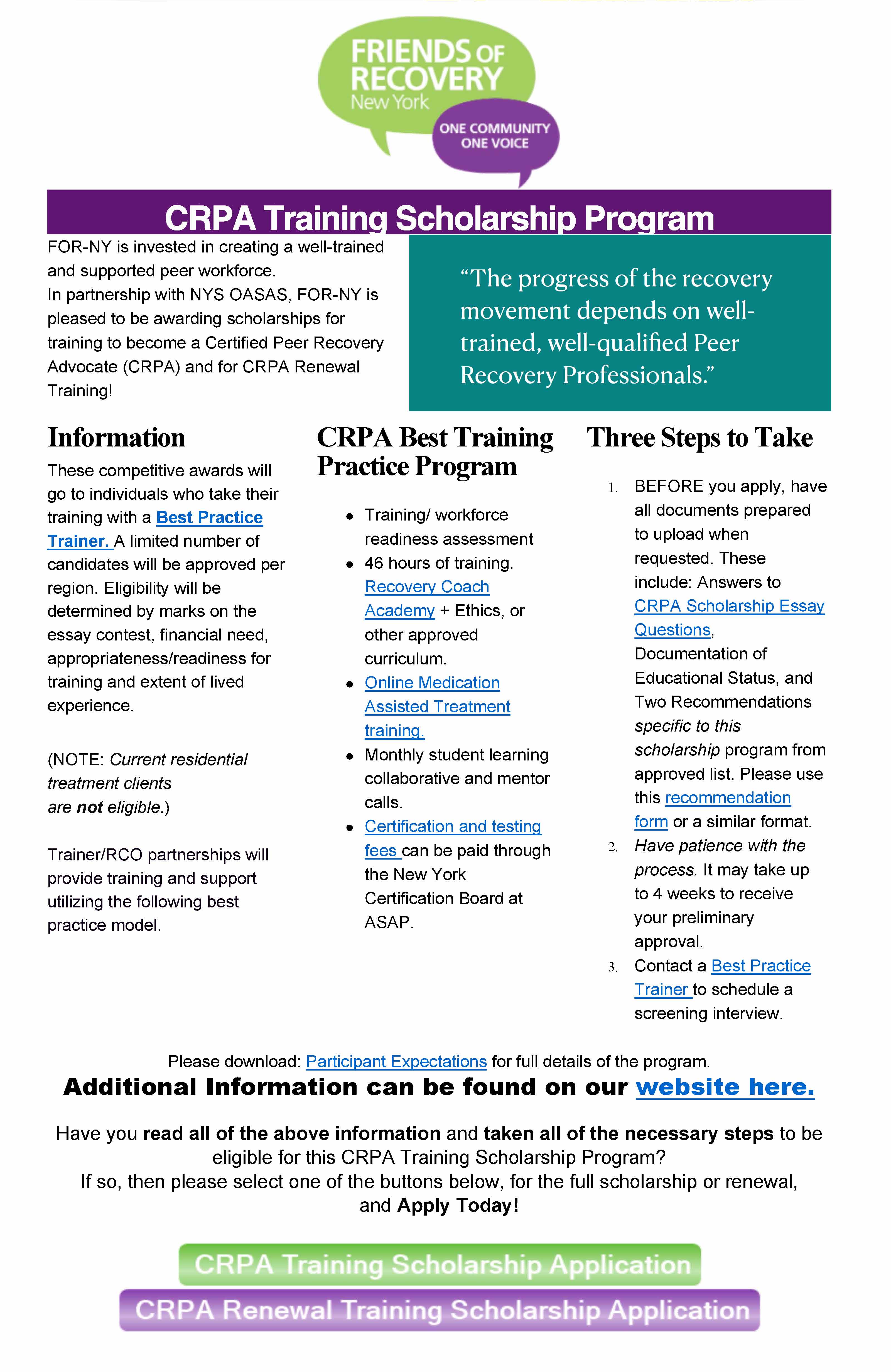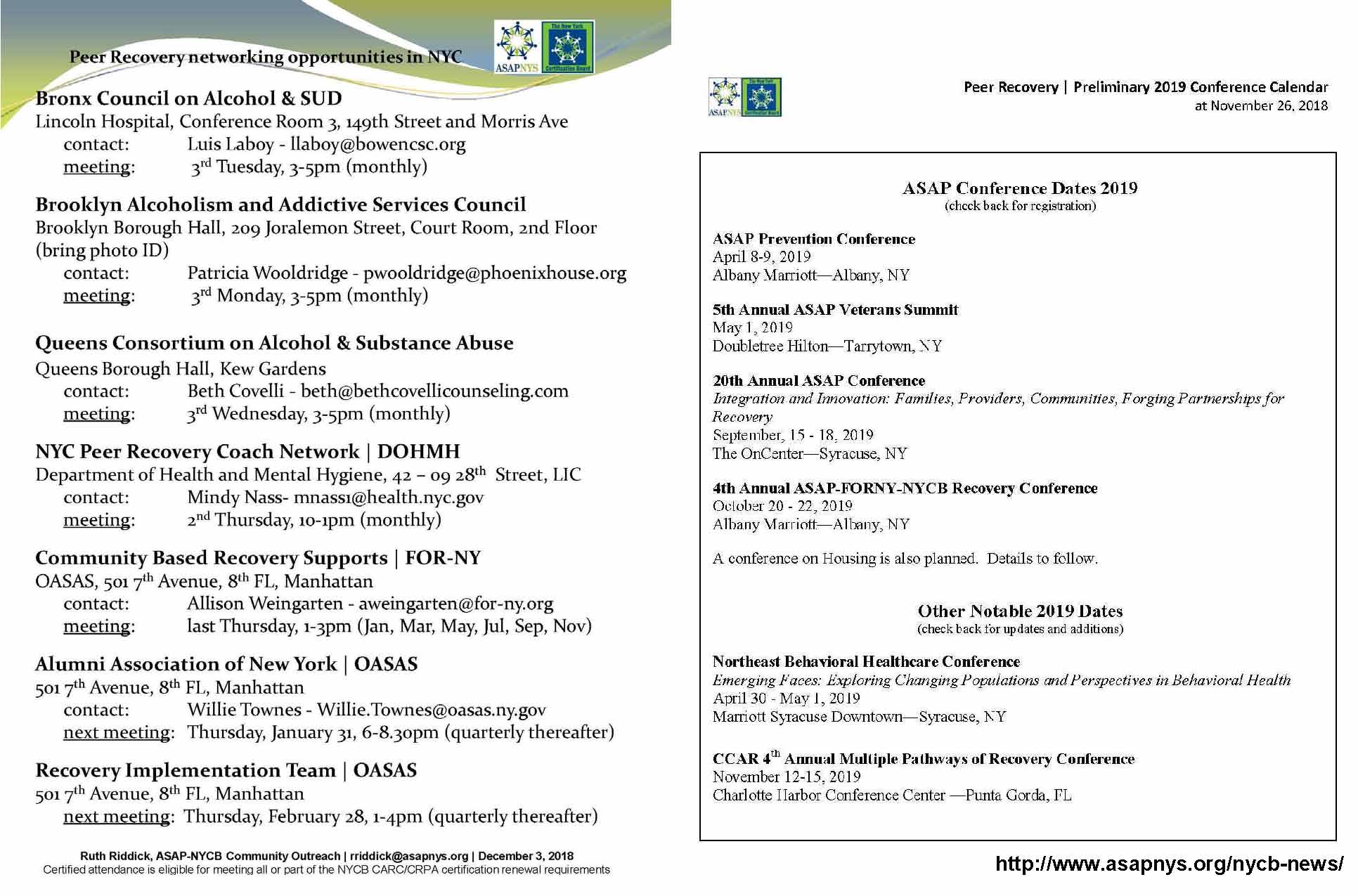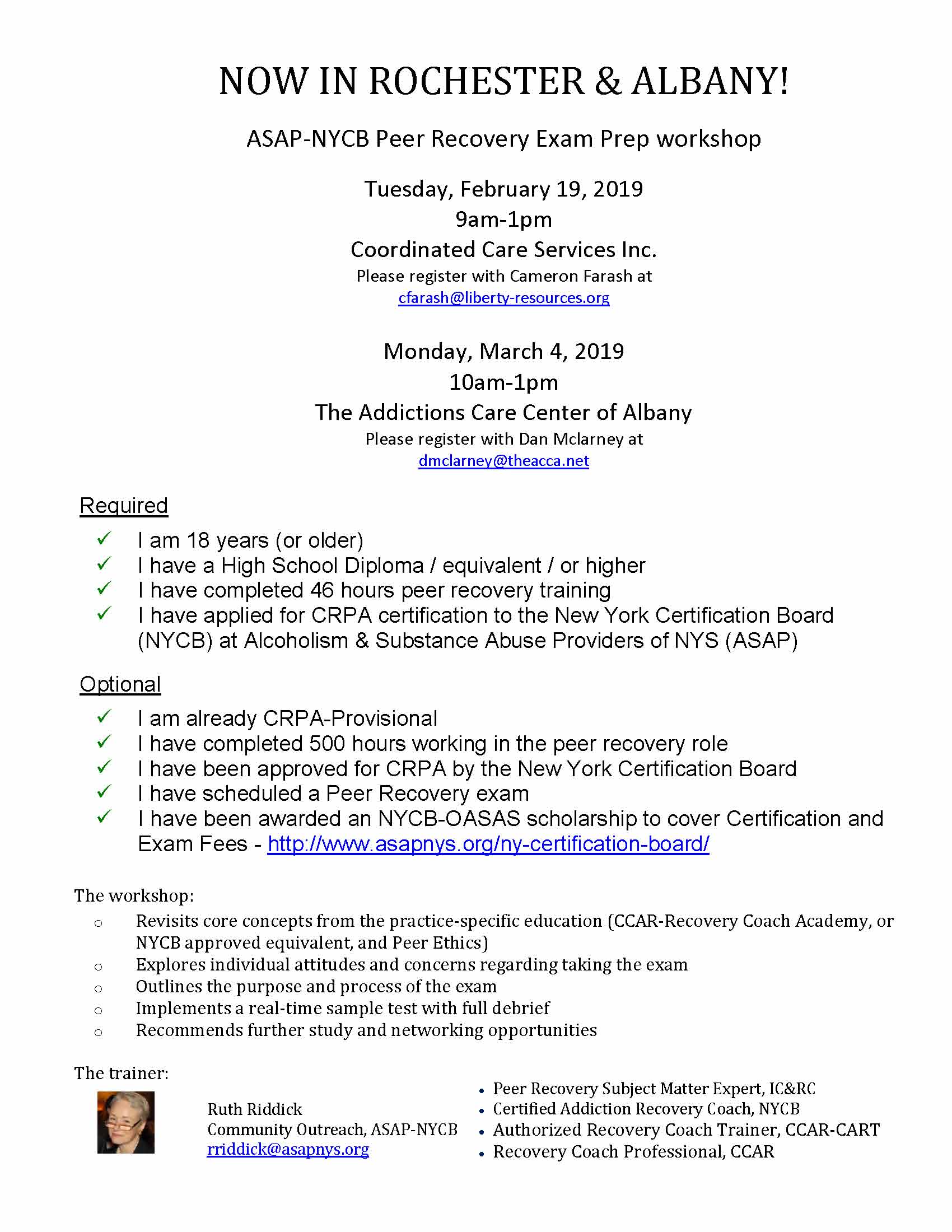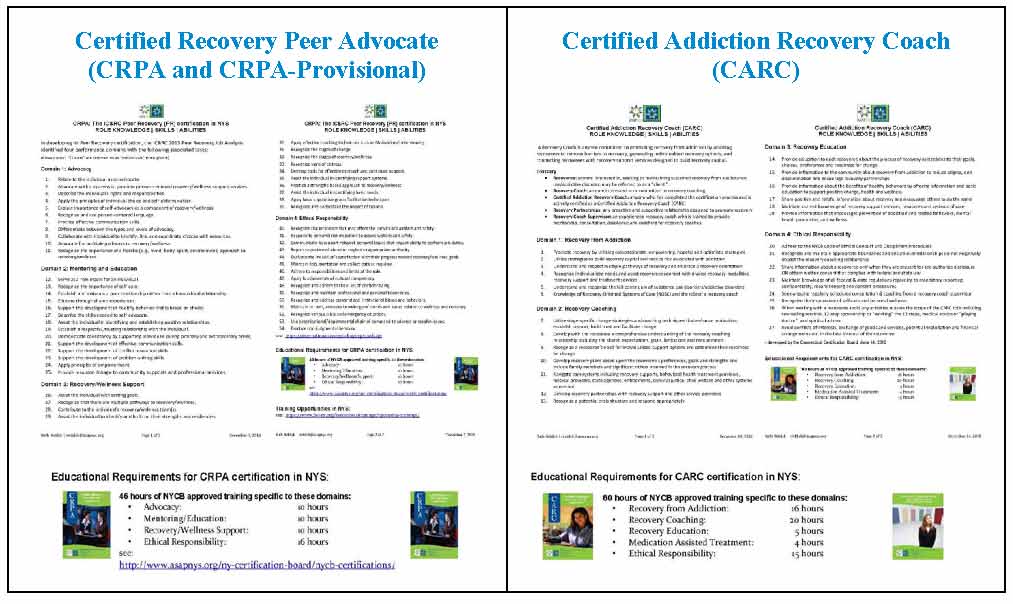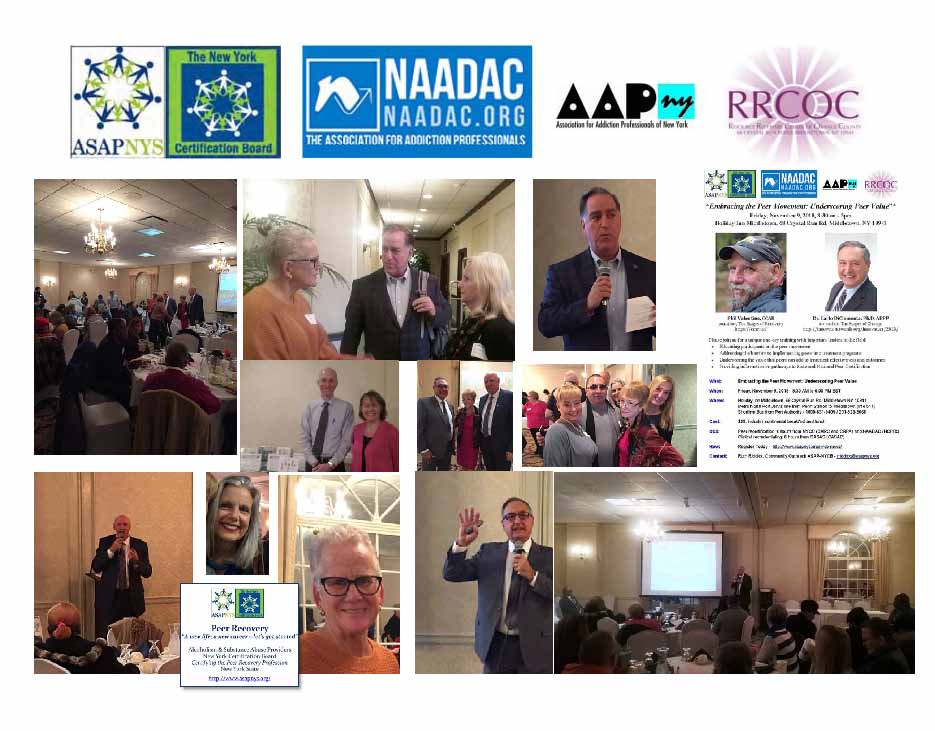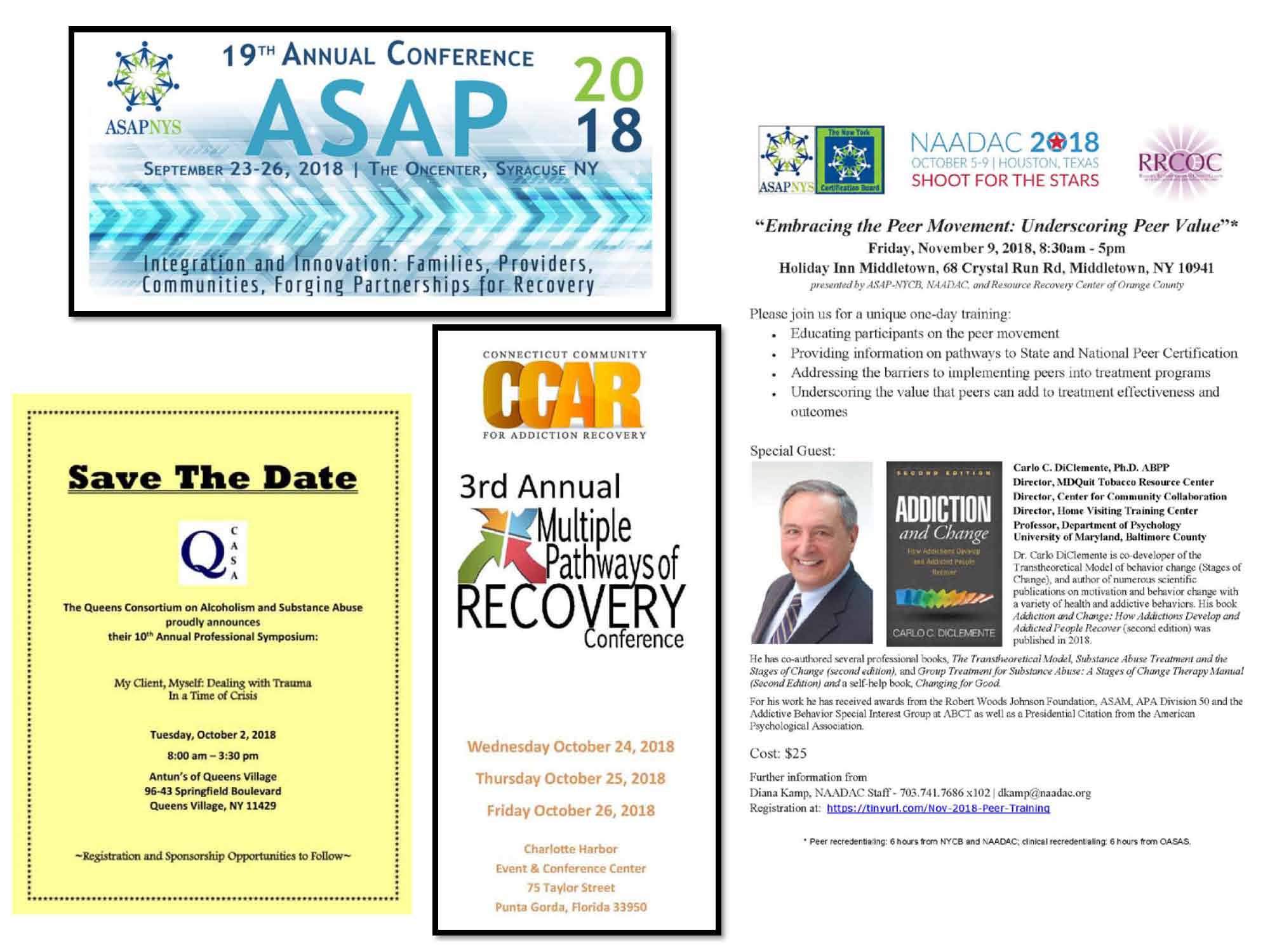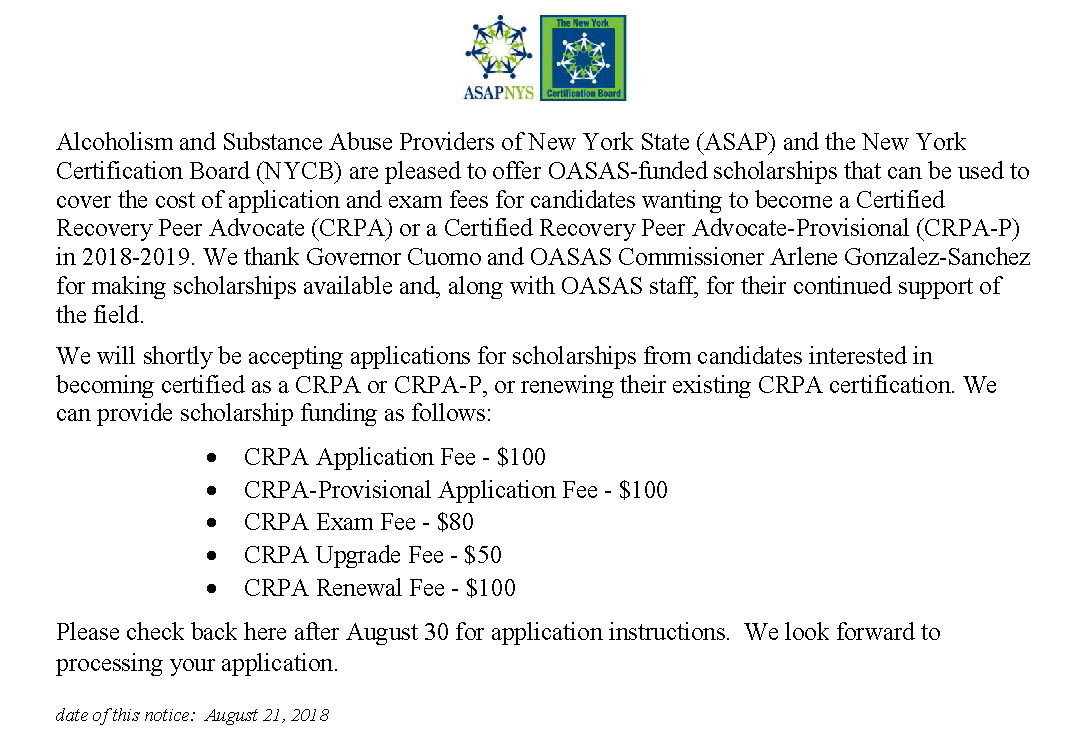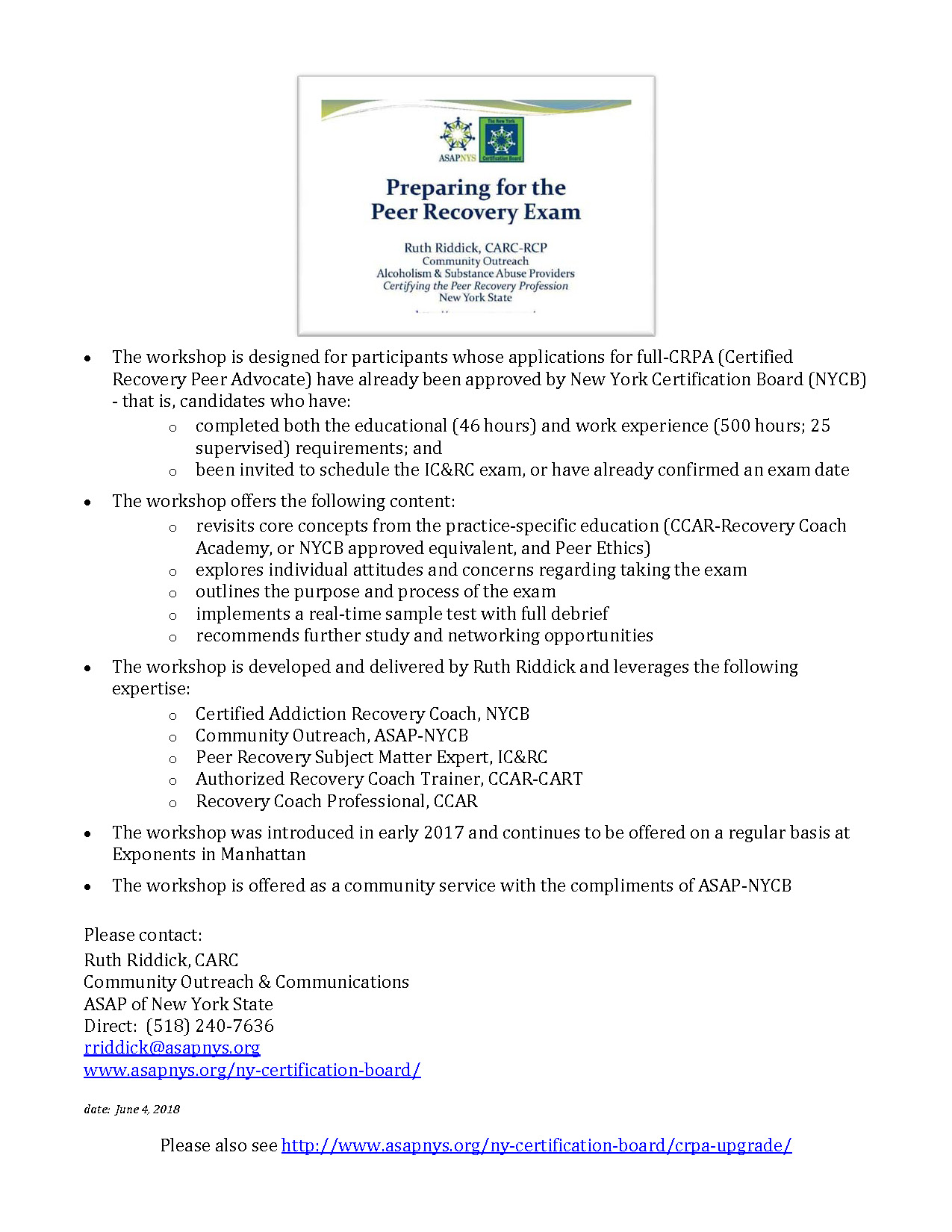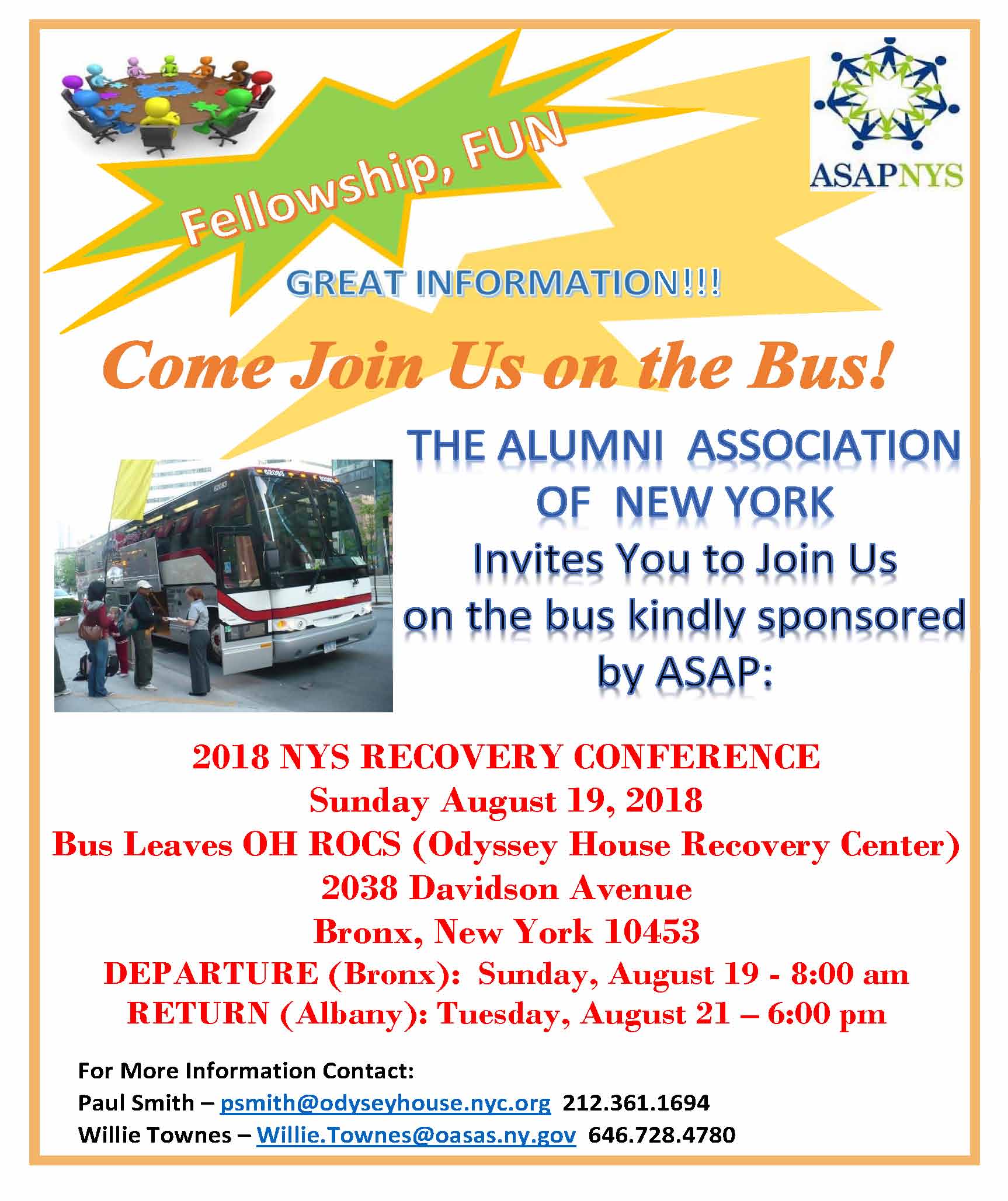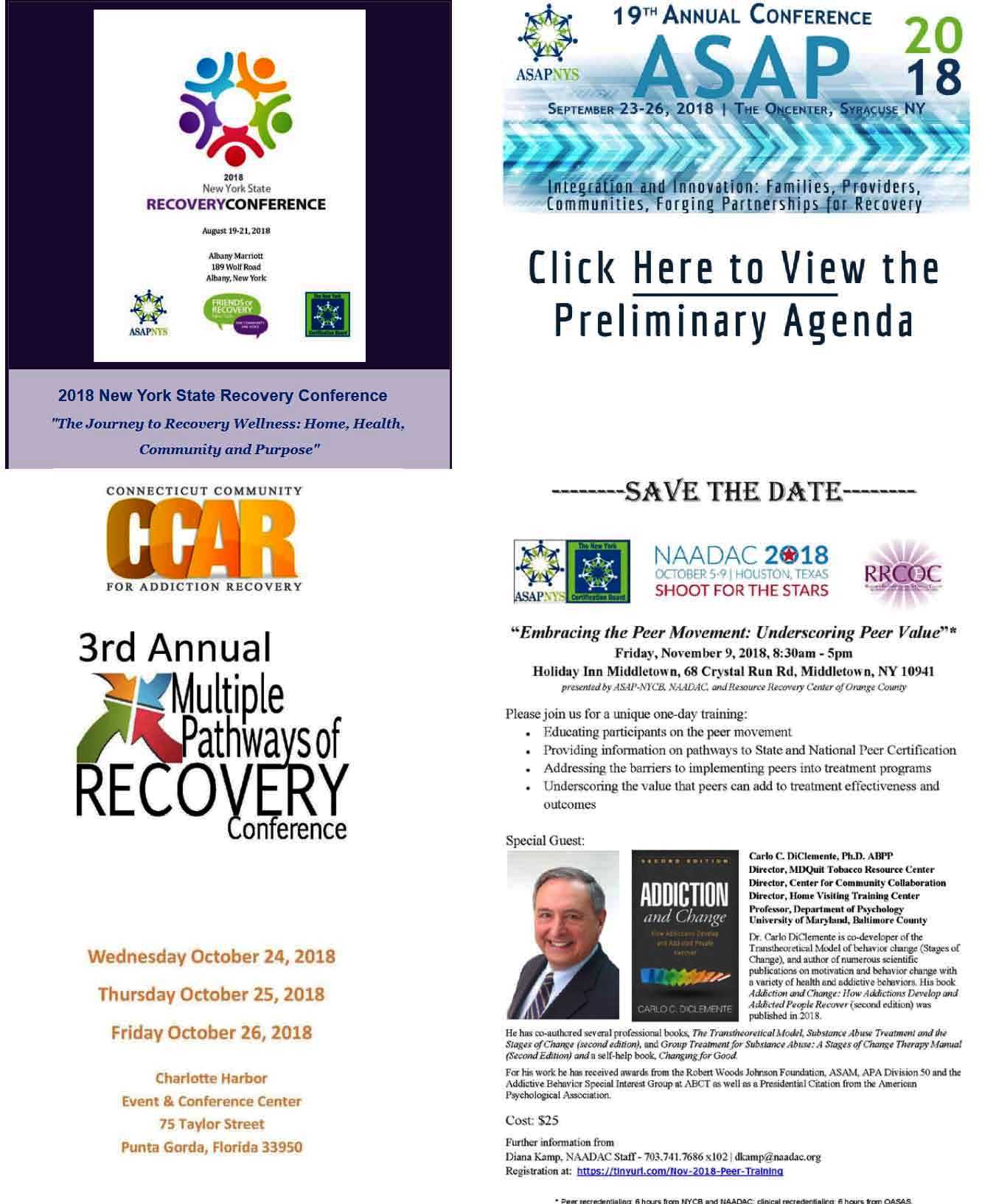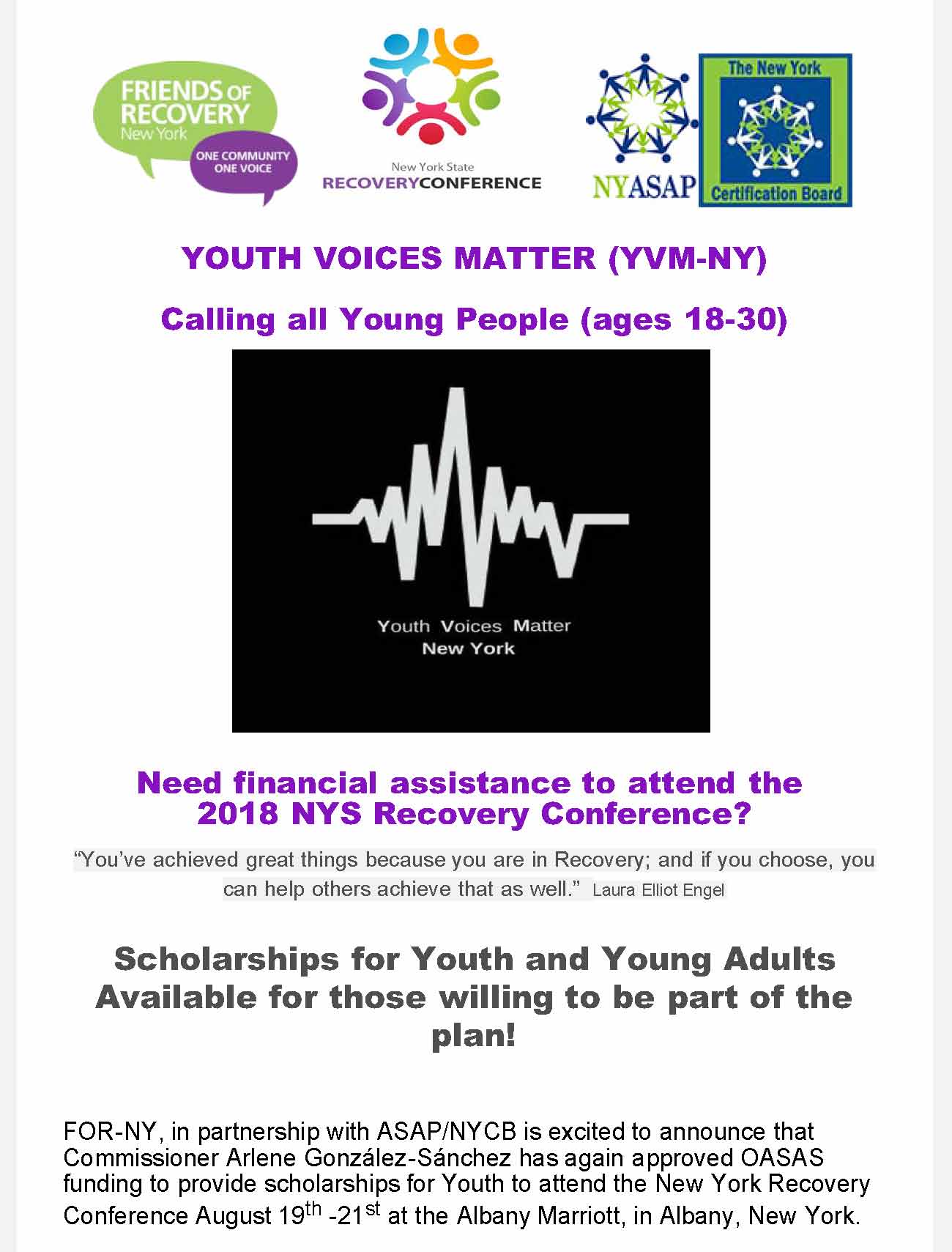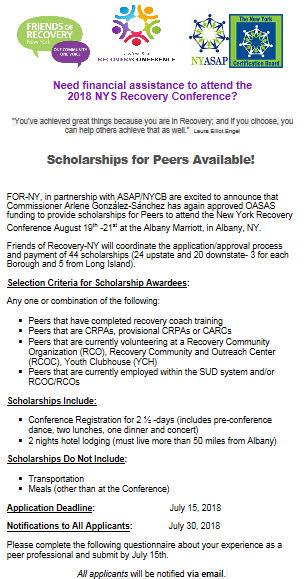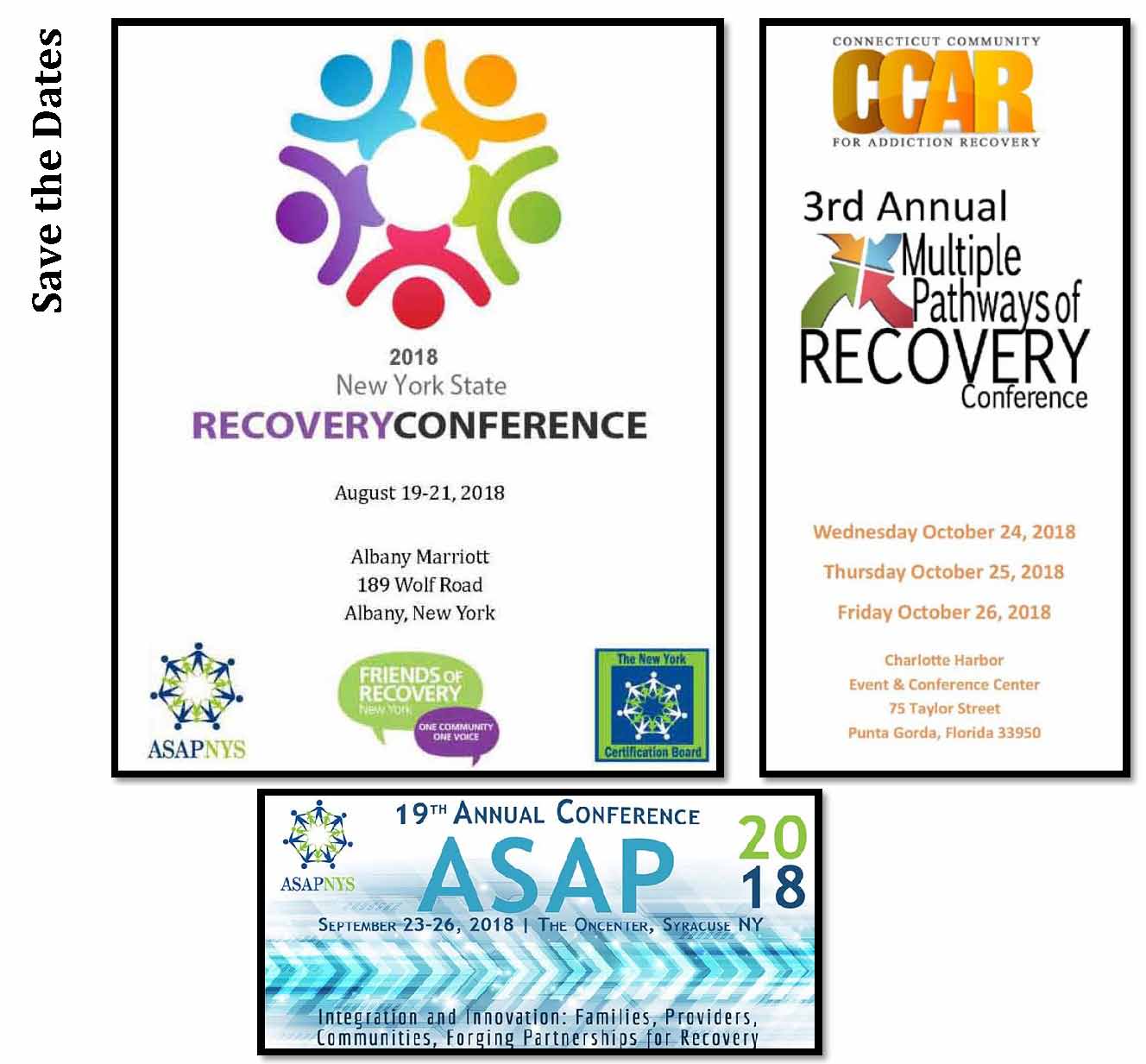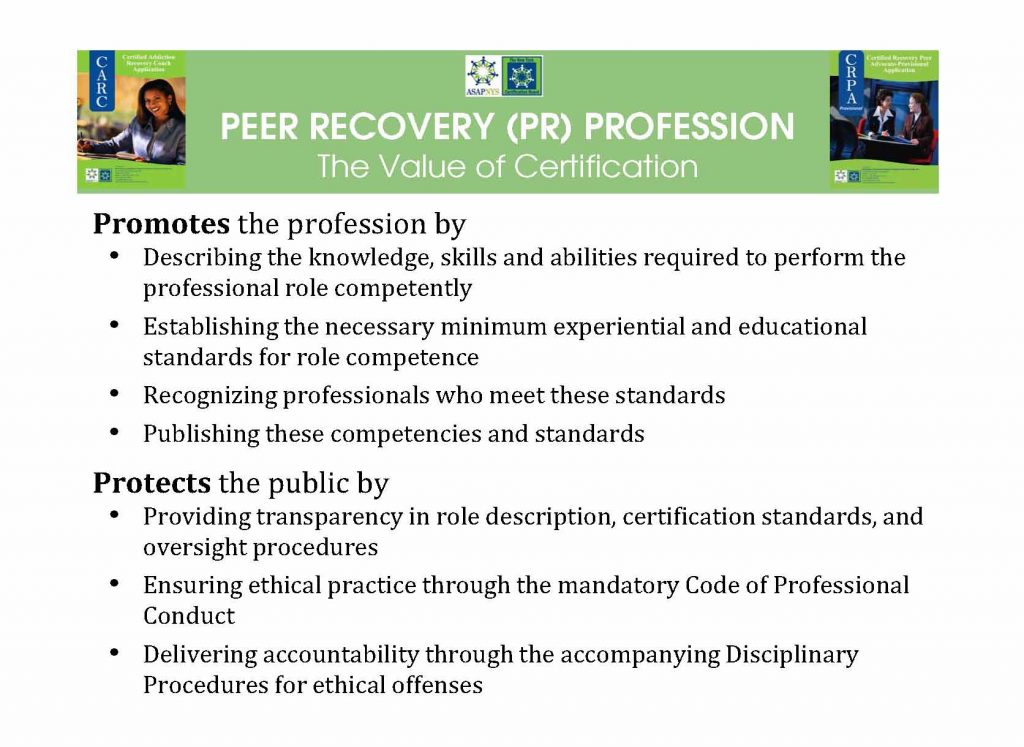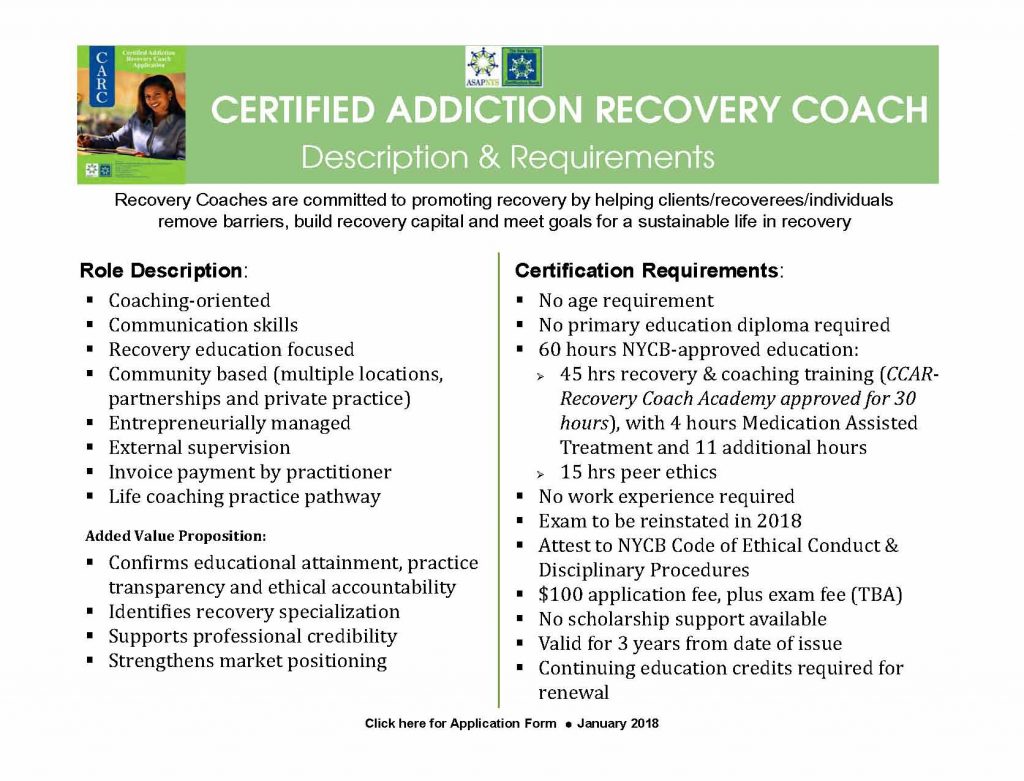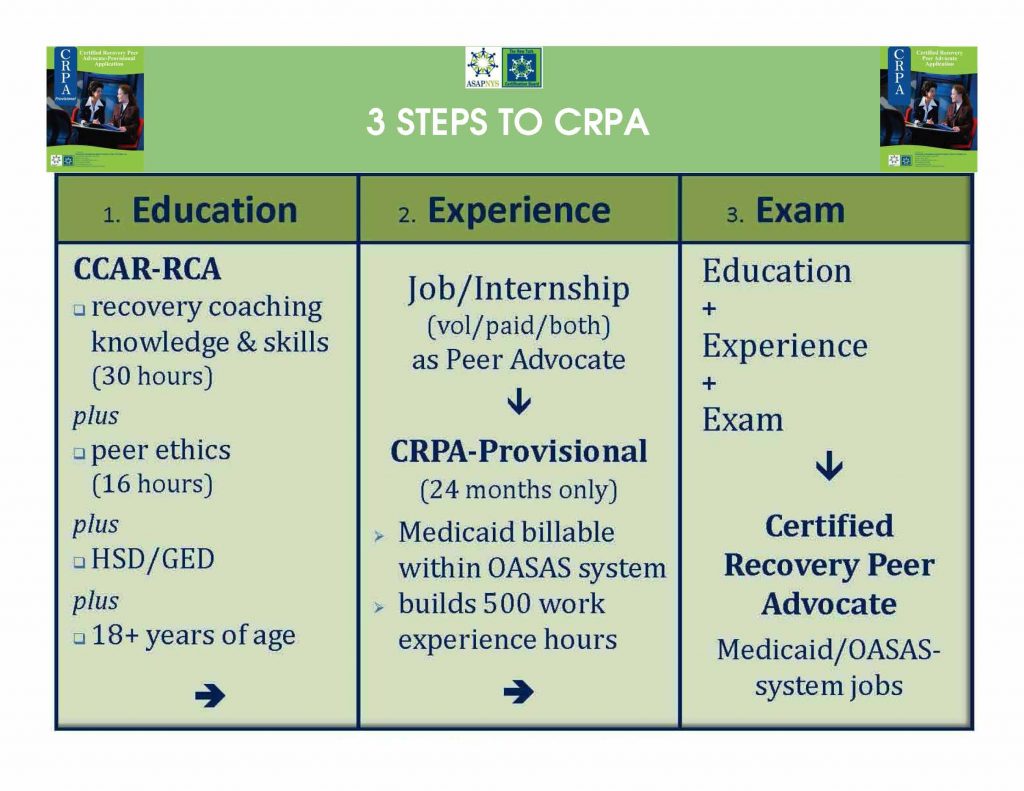What is CRPA-Youth?
The Certified Recovery Peer Advocate-Youth (CRPA-Youth) is a specialized certification under the existing CRPA (Certified Recovery Peer Advocate) credential. It is designed for individuals with the required lived experience (see "definition of a peer" below) who are already certified as CRPAs and wish to provide peer support specifically to youth.
CRPA-Youth certification and training were developed in response to the Children’s Health and Behavioral Health Services provisions of the New York State Plan, effective July 1, 2019. These services are Medicaid-billable and receive higher reimbursement rates when delivered by individuals holding a CRPA-Youth certification.
What are the career opportunities for CRPA-Youth?
Career opportunities for CRPA-Youth are expected to grow as the demand for peer support services increases—particularly within Part 823 Children's Services, which focus on supporting families affected by substance use.
CRPA-Youth professionals provide both formal and informal supports to parents or primary caregivers raising children who face social, emotional, developmental, medical, substance use, and/or behavioral challenges in the home, school, placement, or community.
These services can be delivered in a variety of settings, including the child’s home, school, workplace, community spaces, or wherever the child engages in services or social activities.
The specialized expertise of CRPA-Youth addresses a critical gap in care, helping agencies improve outcomes for families impacted by substance use disorders through peer-supported, long-term recovery.
Who is qualified to become a CRPA-Youth?
CRPA-Youth candidates must meet the following requirements:
- Be between 18 and 30 years of age at the time of initial certification application
- Have lived experience of being impacted by substance use disorder and/or be in recovery from substance use disorder
- Hold a current Certified Recovery Peer Advocate (CRPA) certification (not CRPA-Provisional)
- Complete a 10-hour asynchronous online Youth Supported Recovery training (pre-requisite)
- Complete a 9-hour asynchronous online CRPA-Youth training via DigitalChalk
- Complete a 1-hour live online CRPA-Youth Ethics module with an authorized facilitator
- Attest to and adhere to the IUA-NYCB Code of Ethical Conduct, along with the Youth Supported Recovery Ethical Standards addendum click here
- Submit a $100 application fee
What is the Lived Experience required for CRPA-Youth certification?
For CRPA-Youth certification, lived experience is defined as: Having been impacted or affected by substance use disorder and/or being in recovery from substance use disorder.
Please note: This definition of lived experience is specific to the CRPA-Youth role and may differ from other peer roles.
- Work experience is derived from the candidate’s existing role as a CRPA.
- Educational requirements include completion of both the foundational 50-hour CRPA training and the specialized 20-hour CRPA-Youth training detailed below.
What training is required for CRPA-Youth certification?
Training is available for individuals interested in:
- Expanding their peer support knowledge and skills
- Preparing for certification as a Certified Recovery Peer Advocate - Youth (CRPA-Youth)
- Earning approved continuing education hours toward CARC or CRPA certification renewal
- Effectively navigating the challenges of working with youth impacted by substance use disorder
The CRPA-Youth training program consists of multiple components, which must be completed in the following order:
- Foundational Peer Recovery Training (50 hours)
- Required for CRPA certification.
- Pre-Requisite: Youth Supported Recovery Modules (10 hours, asynchronous)
- Online training developed in partnership with Families Together in New York State (FTNYS).
- Available via McSilver Institute: click here
- CRPA-Youth Role Training 1 (9 hours, asynchronous)
- Self-paced, youth-specialty modules available at DigitalChalk click here
- CRPA-Youth Role Training 2: Ethics Module (1 hour, live)
- A synchronous, youth-focused ethics session conducted by an authorized facilitator.
- Trainers include Johanna Dolan, Keithie Lawrence, and Lisa Nichols.
- View trainer profiles and contact information at the Visit the trainers here
Where can I apply for CRPA-Youth certification?
Once all certification requirements have been met, CRPA-Youth candidates can start the application process by clicking on the self-enrollment link for the CRPA-Youth application: click here
Candidates must complete all steps of the application, or it will not be reviewed.
The CRPA-Youth training program was developed in association with Families Together in NYS.
